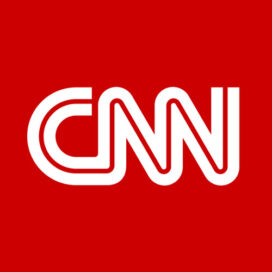Iran opening beckons Peugeot to BAT as Western brands entice
Published: May 4, 2015 / Author: Zahra Hankir

The end to Iran’s international isolation is attracting more than just energy firms.
Carmakers, aircraft and tobacco producers also make the list of companies that analysts from Natixis Securities SAS to Jefferies LLC say may invest in the nation if the April 2 agreement with world powers results in an end to penalties over its nuclear program.
While Total SA, BP Plc, Royal Dutch Shell Plc and Exxon Mobil Corp. all have assets and expertise that could be of use to Iran, holder of the world’s largest gas reserves and fourth-biggest oil reserves, there’s more to the $370 billion economy than hydrocarbons.
The country’s 77 million consumers have been starved of most Western products for more than 10 years as the Islamic Republic failed to convince the U.S. and the European Union that its nuclear program is for peaceful purposes.
Here are 12 stocks that analysts say investors should keep an eye on as Iran is brought back into the international fold:
* Boeing Co. (BA US): The company was granted a short-term license in April 2014 to export jet parts to Iran after lobbying the U.S. government. The shares have gained 16 percent in the past 12 months.
“The Iranian fleet of civil transport is very old and would obviously benefit from modern Western technology,” Howard Rubel, a New York-based analyst with Jefferies, said by phone on Thursday.
* British American Tobacco Plc (BATS LN): Iran is the largest tobacco market in the Middle East, according to BAT, which already sells locally made cigarettes in the country.
“Multinationals, such as tobacco companies, are poised to benefit from the lifting of sanctions to the extent that they stimulate economic activity and enable consumers to purchase consumer goods,” Kenneth Shea, a Princeton, New Jersey-based analyst at Bloomberg Intelligence, said by e-mail on Friday.
* BP (BP US), Eni SpA (ENI IM), Royal Dutch Shell (RDSA NA), Statoil ASA (STL NO), Exxon (XOM US): Iran’s oil minister, Bijan Namdar Zanganeh, has sought to entice the crude and gas giants to invest since Iran first stuck an accord with global powers in November 2013.
Many projects that major oil companies started in Iran prior to sanctions weren’t completed, paving the way for a renewal of investments, according to London-based Bloomberg Intelligence analyst, Philipp Chladek.
“European companies such as BP that have a long storied history in Iran are likely to take the first crack at coming back into the country,” Gianna Bern, an energy consultant who teaches international finance at the University of Notre Dame in Indiana, said this month. “Although some may be wary initially.”
* Daimler GY (DAI GY): The world’s largest truckmaker is waiting on the outcome of talks to determine its future plans in Iran after shutting down its Tehran office four years ago.
As part of its pullout from the Islamic Republic, the German automaker in 2010 abandoned a 30 percent stake in a diesel-engine venture with Iran Khodro and halted deliveries of three-axle trucks.
“We appreciate the recent political framework agreement with Iran,” Silke Mockert, a spokesman at the company, said by e-mail on April 16. “Our future plans will depend in particular on the outcome.”
* Peugeot SA (UG FP) is in talks with local carmaker Iran Khodro to form a joint venture that’s poised to start operations should the nation’s isolation end. Car sales in Iran are set to reach record levels in 2017, Jean-Christophe Quemard, executive vice president for Middle East and Africa, predicted in December.
For a sense of how big of a boon a return to Iran could be, Georges Dieng, a Paris-based equities analyst at Natixis, says Peugeot got about 13 percent of its annual sales from the country before suspending operations in 2012.
Related Stories




